Why Is Pre-Painting Prep Work Important For Commercial Painting Projects?
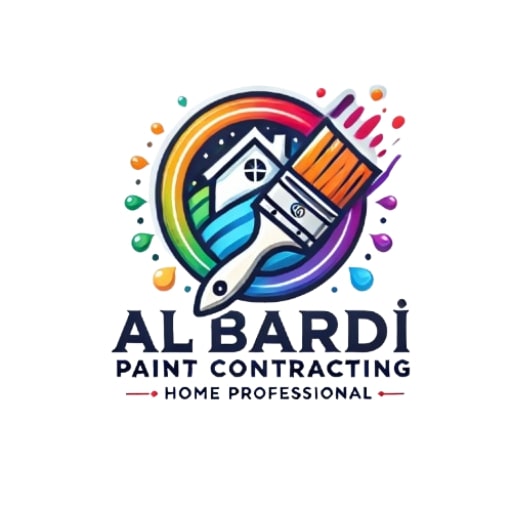
Similar to many other aspects of life, preparation is key. When it comes to painting, preparation will always save you a lot of resources, time, and energy in the long run.
Without the proper prep work, most paint jobs will end up being a disaster. Improper prep work can cause blistering, flaking, or peeling of paint from the surfaces. To prevent this from happening, it is always worth investing time to prepare the surfaces for painting.
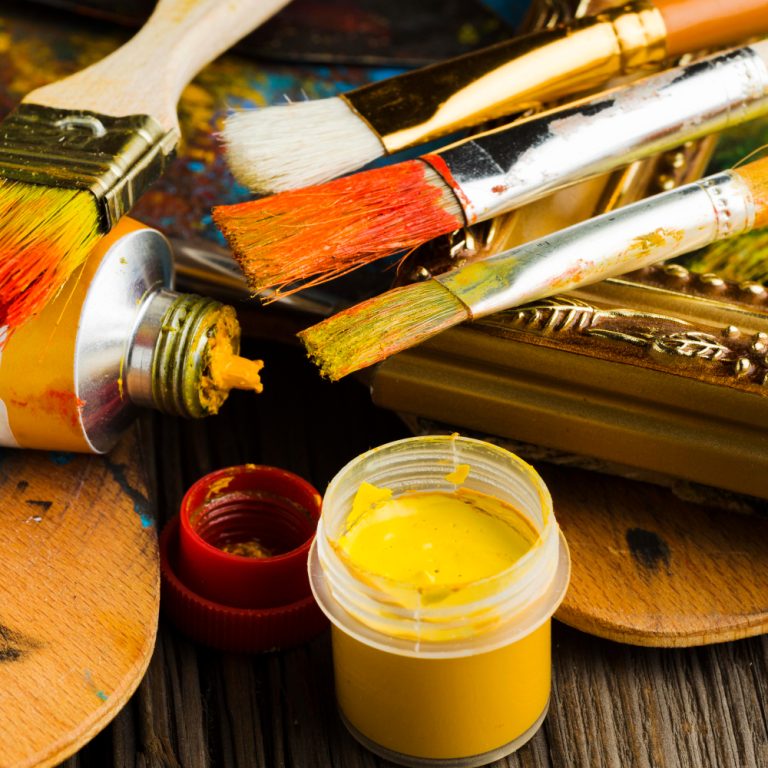
What Is Pre-Painting Work?
Surface preparation for commercial painting projects is usually a time-consuming task. Depending on the size of the property, it can sometimes take a while before the first coat of paint is applied. Rushing the paint surface prep will usually end in a poor-quality paint job. For this reason, it is important to be aware of the necessary painting preparation steps to get the best possible results.
1. Protecting Items & Surfaces in the Painted Area
Before the actual painting begins, the surrounding area needs to be protected from potential damage during the painting process. Any furniture that can be moved should be relocated during the painting process. Carpets, heavy appliances, or heavy furniture should be completely covered with tarps to ensure none of the paint gets on them. This not only protects these items but also makes the cleanup process a lot easier and faster.
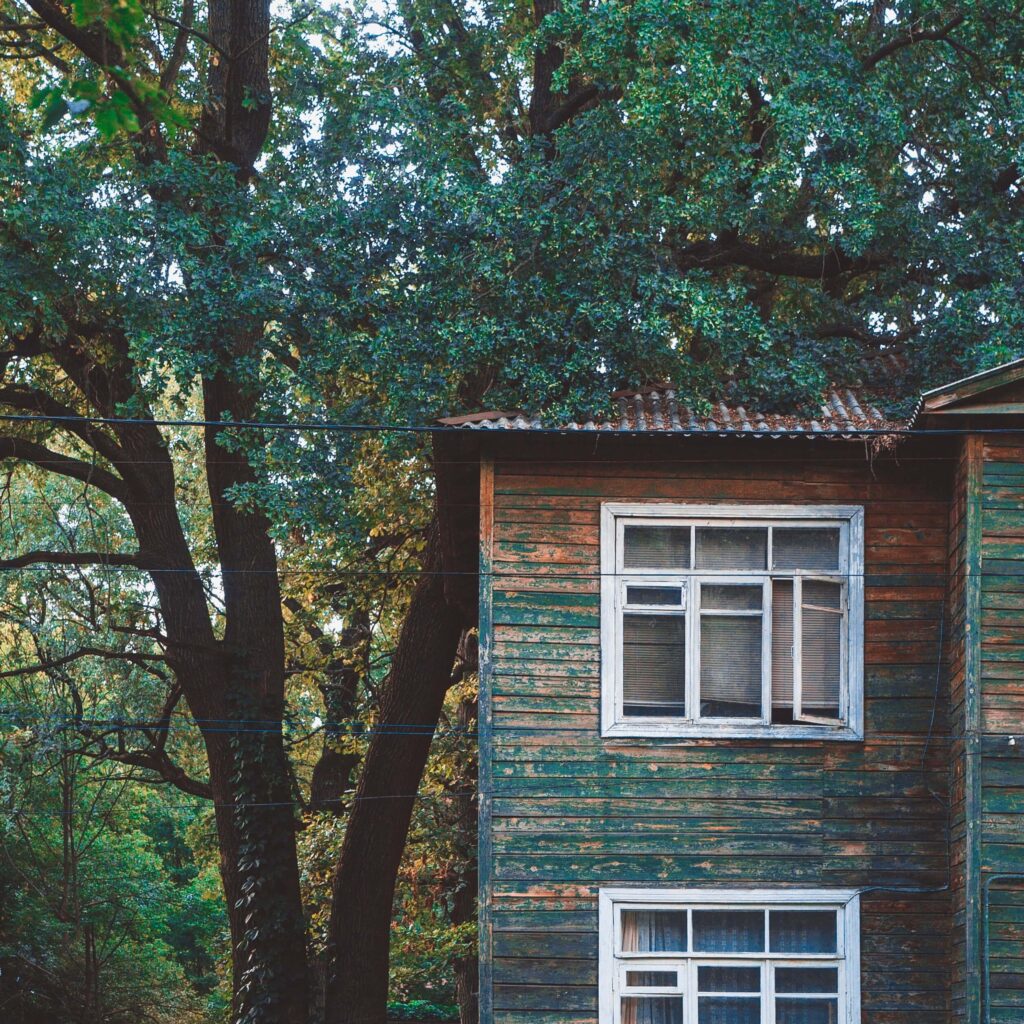
2. Old Paint Removal
It might not always be necessary to remove all of the old paint, but if your commercial property was built before 1978, it is definitely recommended. Lead-based paint was used for many years because of its economic benefits, but the dangers of lead poisoning are too great to ignore. Old paint should also be removed in case it started peeling since repainting a surface with peeling paint will not be enough to fix the problem.
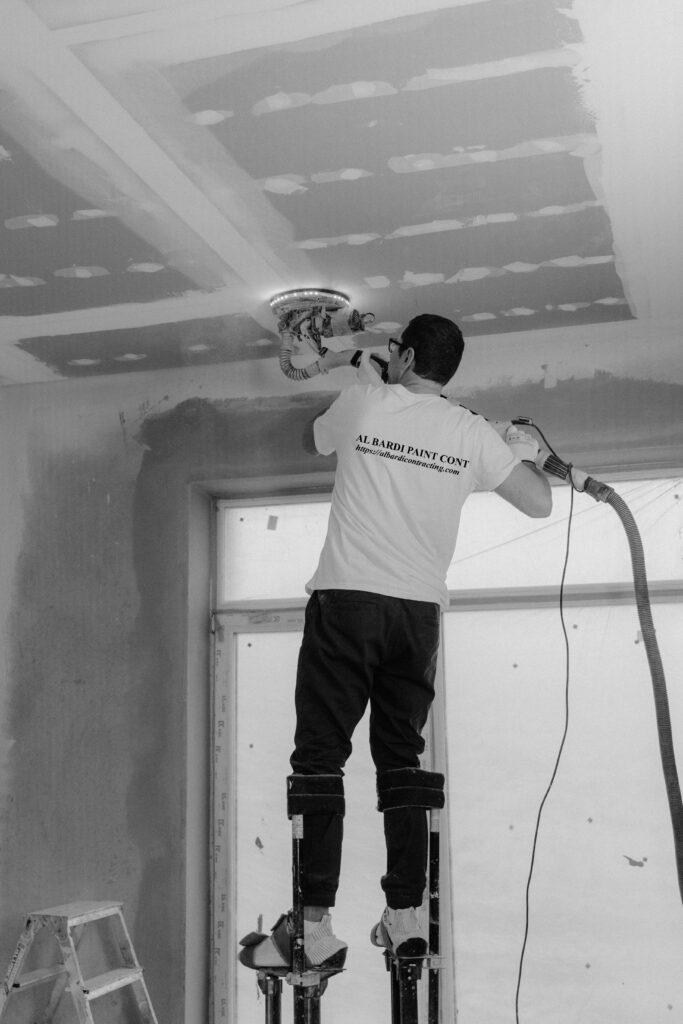
3. Repairing Damages & Imperfections
Imperfections such as gouges, nail holes, or other issues will affect the quality of the paint job if not taken care of.
Wooden surfaces and components might have holes, air pockets, cracks, and other voids that need to be repaired with a wood filler.
Rotting wood need to either be sanded away in case of discoloration or if the wood is soft, the shallow spots need to be dug out and filled with an exterior filler.
Rusty metal surfaces can usually be cleaned with a brush, or in severe cases, a drill with a wire wheel can be used to remove the rust.
Concrete holes, dented surfaces, and blemishes need a cement patching compound to fill in the dents.
4. Old Caulking Removal
To be sure that any cracks at the joints or seams are fixed, new caulking is a must. Caulking prevents any water from getting into your place of business. Another benefit of caulking is that it makes the paint job look uniform.
Before applying new caulking, the existing caulking must be dug out from the joints. All siding joints and gaps need to be sealed to keep water and moisture out.
5. Sanding the Surface
Removing the old paint and repairing the imperfections will leave the surface uneven. Sanding the surface will make it smooth and even. The sanding process will generate a lot of dust, so the surfaces will need to be completely cleaned before painting, otherwise, the paint will not stick.
6. Power Washing the Surfaces
Thoroughly cleaning the exterior surface of a commercial building is a must before applying new paint. Cleaning commercial buildings of any size is best done with power washing. It will remove any surface contaminants using pressurized water under a high temperature.
In order to achieve good paint adhesion, a clean surface is needed. If this part of the preparation is not done right, the paint will soon start peeling as it cannot stick to a dirty surface.
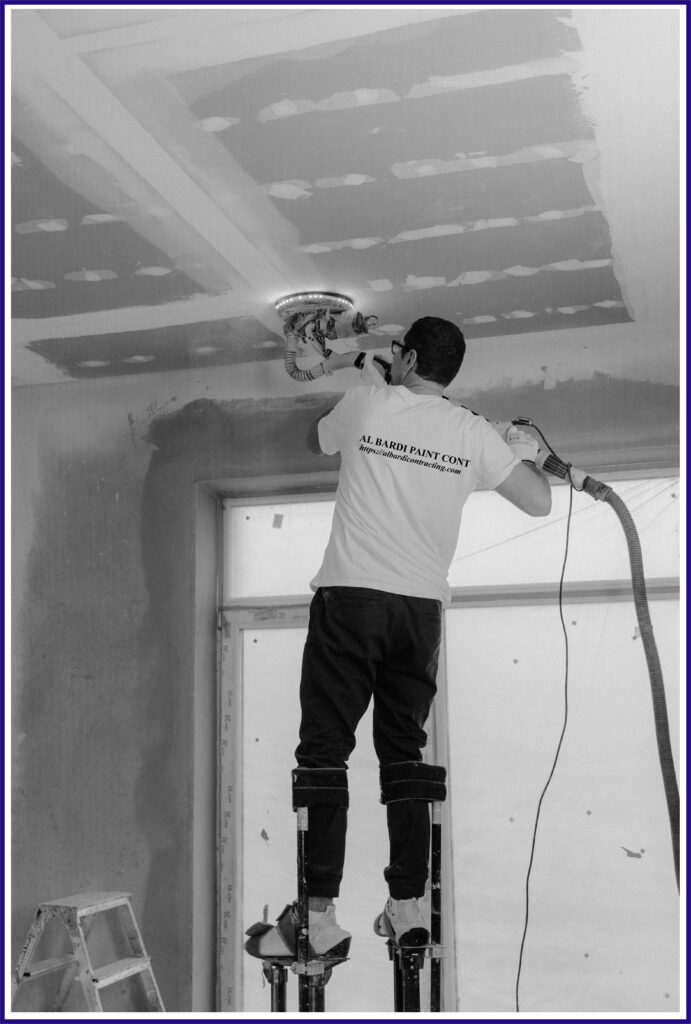
7. Protecting the Areas that Aren’t Being Painted
To prevent the paint from getting on any surfaces that aren’t supposed to be painted, you should always tape off those areas. Taping off baseboards, window frames, and door frames will help you keep your peace of mind during the paint job.
8. Preparing Agreed-upon Quality Paint
Quality paint can be expensive, but it will result in a smoother, uniform, and beautiful-looking surface that will last much longer. With cheaper paint, you might save in the short term, but you’ll pay a lot more because it will need repainting much quicker.
Once they have prepped the inside of your building, it’s time to work on the paint job itself.
9. Applying The Primer
A primer is applied to the surface to improve the adhesion and extend the lifespan of the paint. Applying the primer is a necessary step in any paint job as it will prevent the paint from peeling.
Wood Primer
Oil-based primer is the best choice for wood surfaces. It does take a long time to dry, allowing plenty of time for it to soak into the wood.
Masonry Primer
Masonry surfaces include brick, concrete, and cement block, which must be treated differently than other materials. Two factors that must be considered for masonry primers are efflorescence and pH level. Masonry primers are efflorescent-resistant and will allow you to safely paint over a wider range of pH levels without risk of adhesion loss.
Stain-blocking Primer
Different types of stain-blocking primers are used for common issues such as:
- Keeping water and smoke stains from bleeding through the finished coat
- Painting over grease stains
- Making a dramatic color change
Signs of Improper Pre-Painting Preparation
The first signs of improper prep work will start to show quickly. You might notice flaking or peeling paint on walls or ceilings, or sometimes the paint will simply not adhere to the surface and will come off in strips.
In the worst-case scenario, you might even need to repaint the whole facility again after the job is done, which further extends the project duration and in some cases prevents you from operating as usual.
A fresh coat of paint for your commercial property can go a long way in maintaining the integrity of the building, refreshing your space, and attracting the right kind of attention, but only when done correctly.
If your commercial project Dubai and Sharjah is in need of professional painting services, contact PPD Painting today. We have over 15 years of experience delivering top-notch commercial painting expertise with efficiency, responsiveness, and professionalism.